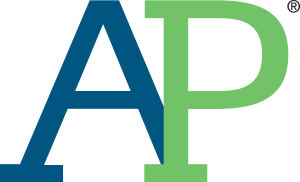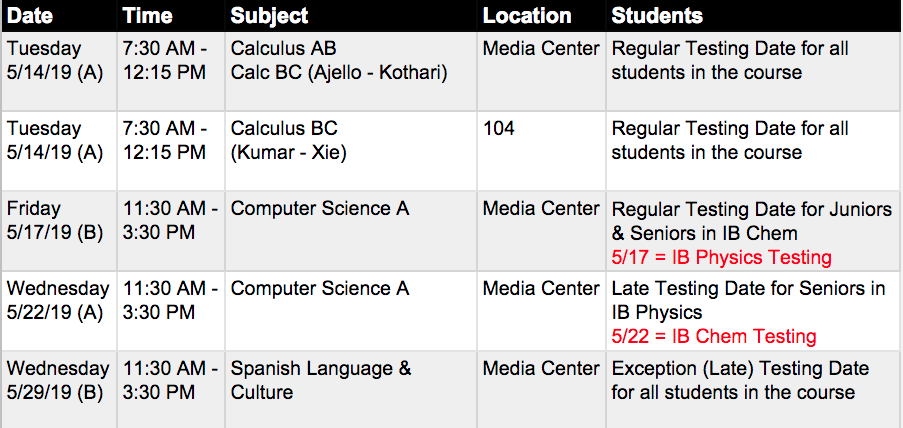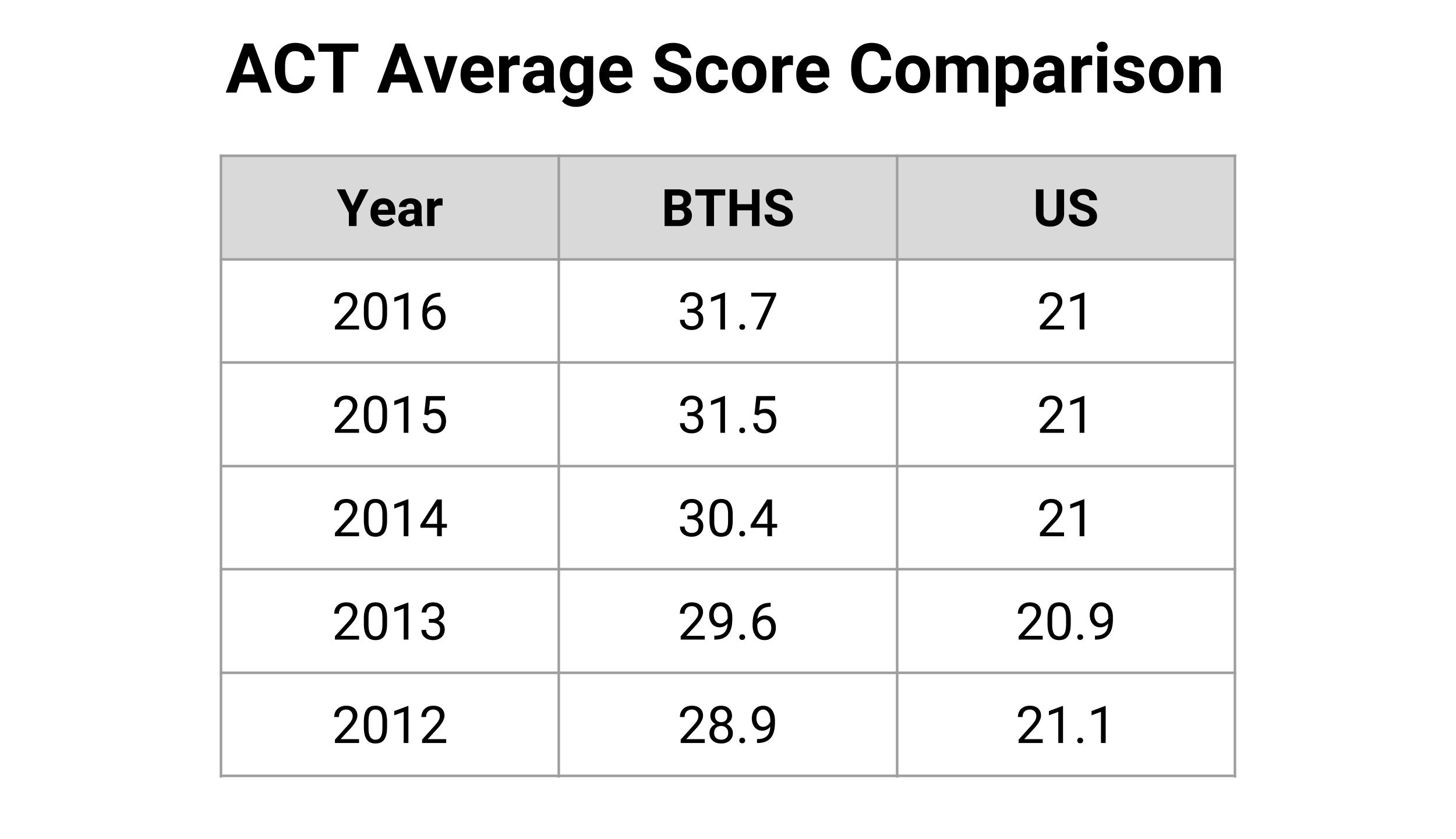AP Testing Info May 2019
 Thursday, May 2, 2019 at 3:39 PM
Thursday, May 2, 2019 at 3:39 PM 

You should bring the following items to the exam room:
- Several sharpened No. 2 pencils (with erasers) for completing multiple-choice answer sheets.
- Pens with black or dark blue ink for completing areas on the exam booklet covers and for free-response questions in most exams.
- A watch that does not have internet access, beep, or have an alarm (in case your exam room does not have a clock that you can see easily).
- Up to two calculators with the necessary capabilities if you are taking the Calculus Exam. Click here to learn more about the calculator policy for Calc BC, including a list of acceptable calculators.
- Your Social Security number (for U.S. citizens)* for identification purposes (optional). If you provide it, the number will appear on your AP score reports. *Some colleges and universities use Social Security numbers as student identifiers when assigning AP credit or advanced placement for qualifying AP scores. While the College Board does not require students to provide their Social Security number, they may want to check with the college or university where they are sending scores to see if they prefer for students to provide a Social Security number on their AP Exam answer sheet.
You should not bring the following to the exam room:
- Electronic equipment (cell phone, smartphone, laptop, tablet computer, etc.), portable listening or recording devices (MP3 player, iPod, etc.), cameras or other photographic equipment, devices that can access the Internet, and any other electronic or communication devices.
- Unapproved aids: Books, compasses, mechanical pencils, correction fluid, dictionaries, highlighters*, notes or colored pencils.*
- Rulers, straightedges, and protractors
- Scratch paper; notes can be made on portions of the exam booklets or, for Chinese Language and Culture and Japanese Language and Culture, on scratch paper provided by the proctor.
- Computers or calculators (except as noted above).
- Reference guides, keyboard maps, or other typing instructions.
- Watches that beep or have an alarm, or smartwatches.
- Clothing with subject-related information.
- Food or drink.
Additional Information:
- Students may not be dismissed until an exam has officially ended; do not ask to leave early if you finish before the end of the exam.
- Get a good night’s rest before your exam, and eat a nutritious breakfast. You are allowed to bring a snack and beverage for your 10-minute break. However, food and drink are prohibited in the exam room. It is advisable to bring a sweater, in case the room temperature is below your comfort level.
- For Morning Exams - please bring your lunch. Testing will end at around 12:00 pm, and cafeteria service will not be available.
- You are required to abide by the policies of both the College Board and Biotechnology High School during the exam period. Any misconduct will be reported and could jeopardize your AP Exam score.
- Be sure to review the Bulletin for AP Students and Parents.
- For Comp Sci & Calc: you'll get your scores online in July - details
- For Spanish: scores will be delayed until August
 Site Director | Comments Off |
Site Director | Comments Off |  Class of 2019,
Class of 2019,  Class of 2020,
Class of 2020,  Testing
Testing 

